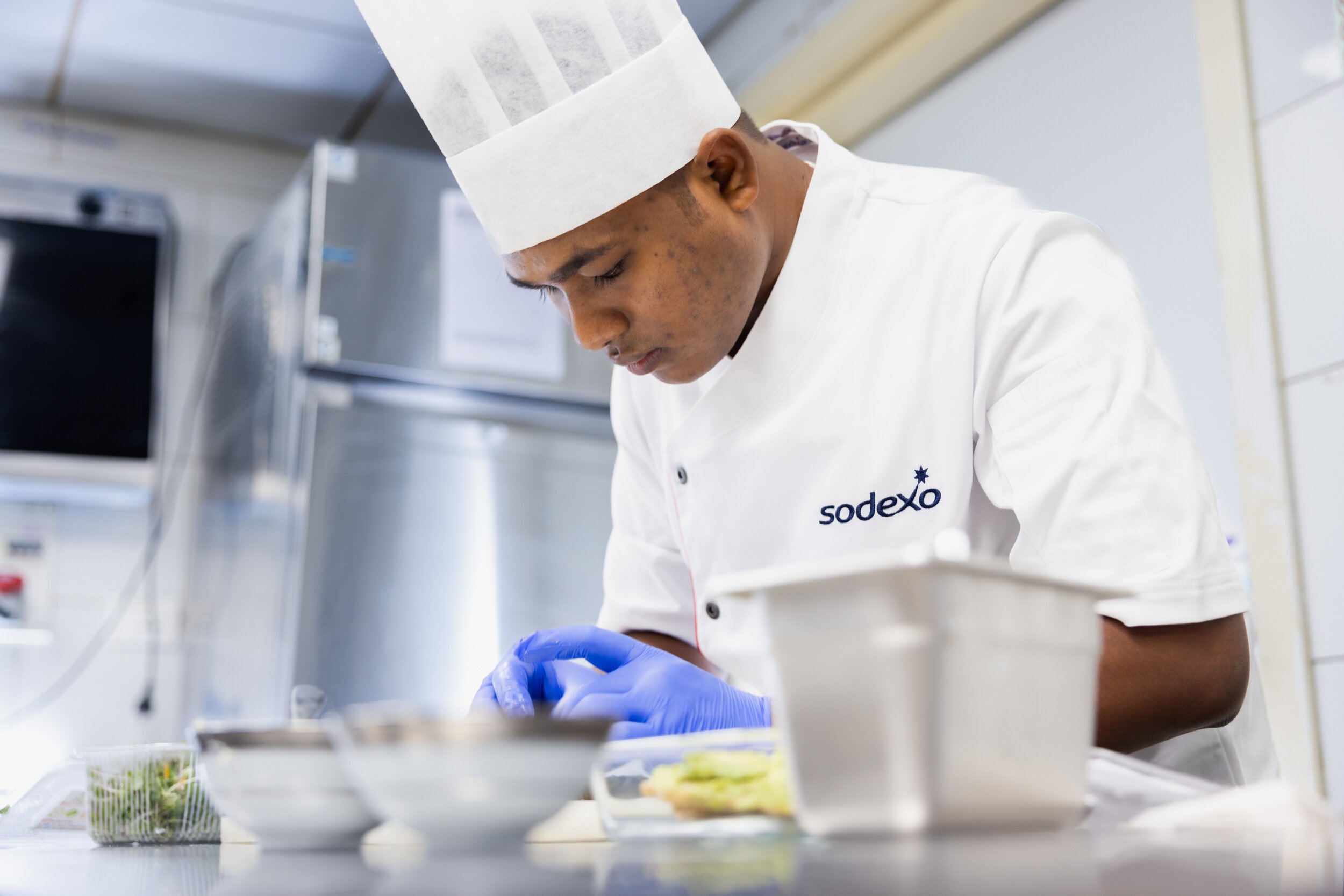Why Certifications Matter in Facilities Management

Certifications can sometimes be viewed as corporate decorations and self-promotion devices, but for Sodexo MEA, we see professional certification as a practical tool for delivering better service. Across all the sectors we serve, clients rely on us to operate consistently, safely and with full accountability. Certifications help us meet those expectations through internationally recognised standards.
This article explains how international certifications like ISO 9001, HACCP and ISO 22000 work across our operations. You’ll see how they build confidence for clients, create clear expectations for teams, and support long-term performance in service delivery and professional growth.
Certifications Build Confidence and Accountability
Standards give Sodexo MEA and its clients a shared language. They define what quality looks like, how to measure it and how to improve it. When teams follow certified systems, clients don’t have to rely on assumptions. Instead, they get evidence-based standards of service that are consistent across contracts, locations and shifts.
This clarity reduces risk and builds trust: two priorities that matter across every client relationship.
Recognising Key Certifications in Practice
Here are some of the certifications that play a central role across Sodexo’s operations. Each one shapes how we manage risk, deliver quality, and maintain safety across a range of services.
HACCP: Hazard Analysis and Critical Control Points
HACCP is a preventive food safety system that identifies and manages risks at each stage from sourcing to serving. All Sodexo MEA kitchens have defined control points and daily checks. Our teams are trained to spot issues early and act fast to ensure safe and efficient food service.
ISO 22000: Food Safety Management Systems
ISO 22000 expands on HACCP by integrating food safety with management systems and supply chain controls to ensure traceability and supplier oversight.
ISO 9001: Quality Management Systems
ISO 9001 sets a clear framework for defining, measuring and improving all services. It covers client communication, training, documentation and risk control.
Sodexo MEA managers use it to track delivery, review feedback, and adapt processes to meet client expectations across all sectors.
ISO 14001: Environmental Management System
ISO 14001 provides a structured approach to reducing environmental impact and managing sustainability goals.
This framework guides waste reduction, resource efficiency and regulatory compliance. Our teams use it to plan, monitor and improve environmental performance on client sites.
ISO 45001: Occupational Health and Safety Management System
ISO 45001 sets international standards for workplace health and safety, identifying risks and preventing harm.
It’s used to protect employees and contractors across sites by supporting training, incident reporting and continuous improvement.
CIMS: Cleaning Industry Management Standard
CIMS focuses on maintaining professional, consistent and sustainable cleaning services. It covers planning, health and safety, staff training, and green practices.
ISO 50001: Energy Management System
ISO 50001 helps organizations to improve energy efficiency through structured planning and monitoring. Sodexo MEA is working toward this certification while supporting clients in reducing energy use and costs.
A Framework That Works Across Sectors
Sodexo operates in sectors ranging from education and healthcare to energy and corporate services. Certified systems make it possible to maintain the same level of quality and safety, no matter the context.
They help standardize processes across new sites, simplify onboarding, and create smooth transitions between teams. This structure reduces disruption and ensures that performance doesn’t depend on any one person, but on shared systems.
Certifications Support Team Growth and Skills Transfer
Working within certified frameworks also supports Sodexo teams. It gives them:
- Clarity: They know what’s expected and how to deliver it.
- Portability: Skills gained in one role apply in others.
- Credibility: External standards validate their work.
For example, a chef trained in HACCP can work in a variety of sectors, and a facilities manager operating under ISO 9001 learns practices that apply across industries. These systems help teams grow in confidence, competence and mobility.
Driving Quality Through Audits and Continuous Improvement
Certifications are not one-off achievements or a snapshot in time. They depend on regular reviews and updates, which encourage feedback, correction and innovation.
Systems like ISO 22000 are built to evolve. They help Sodexo apply what’s learned across contracts and prevent small issues from becoming costly problems.
This keeps teams focused, clients informed and services improving.
Certainty, Scalability and Trust
Clients choose Sodexo because they want performance they can count on. Certifications support that. They provide a structure that guides delivery, a framework for improvement and a standard our teams can rely on.
When every process is built on proven methods, outcomes become more predictable and more trusted.